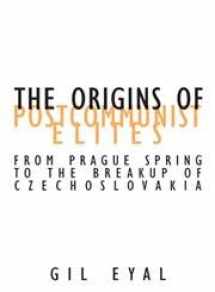
The Origins Of Postcommunist Elites: From Prague Spring To The Breakup Of Czechoslovakia (Volume 17) (Contradictions of Modernity)
Book details
Summary
Description
How is it that Czechoslovakia's separation into two countries in 1993 was accomplished so peacefully-especially when compared with the experiences of its neighbors Russia and Yugoslavia? This book provides a sociological answer to this question-and an empirical explanation for the breakup of Czechoslovakia-by tracing the political processes begun in the Prague Spring of 1968.
Gil Eyal's main argument is that Czechoslovakia's breakup was caused by a struggle between two factions of what sociologists call "the new class," which consisted primarily of intellectuals and technocrats. Focusing on the process of polarization that created these two factions-and two distinct political elites-Eyal shows how in response to the events of the ill-fated Prague Spring Czech and Slovak members of the new class embarked on divergent paths and developed radically different, even opposed, identities, worldviews, and interests. Unlike most accounts of postcommunist nationalist conflict, this book suggests that what bound together each of these factions-and what differentiated each from the other-were not national identities and nationalist sentiments per se, but their distinctive visions of the social role of intellectuals.
Gil Eyal is associate professor of sociology at Columbia University.


We would LOVE it if you could help us and other readers by reviewing the book
Book review



